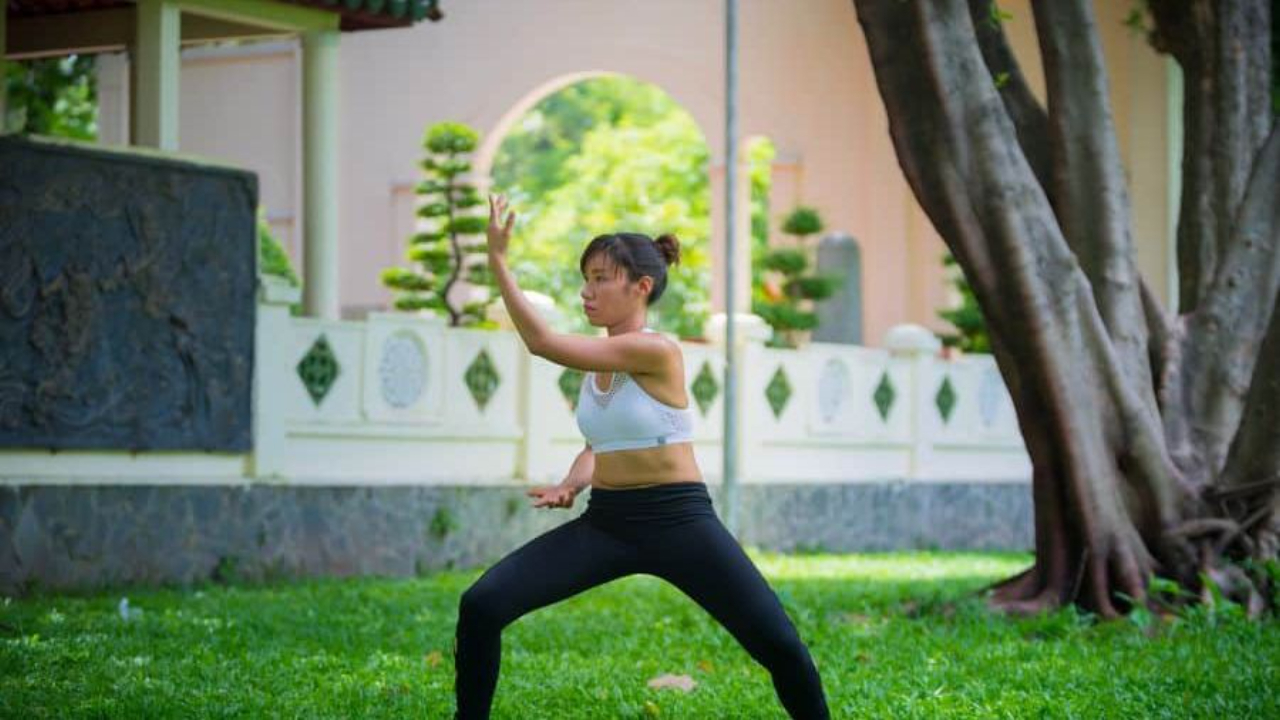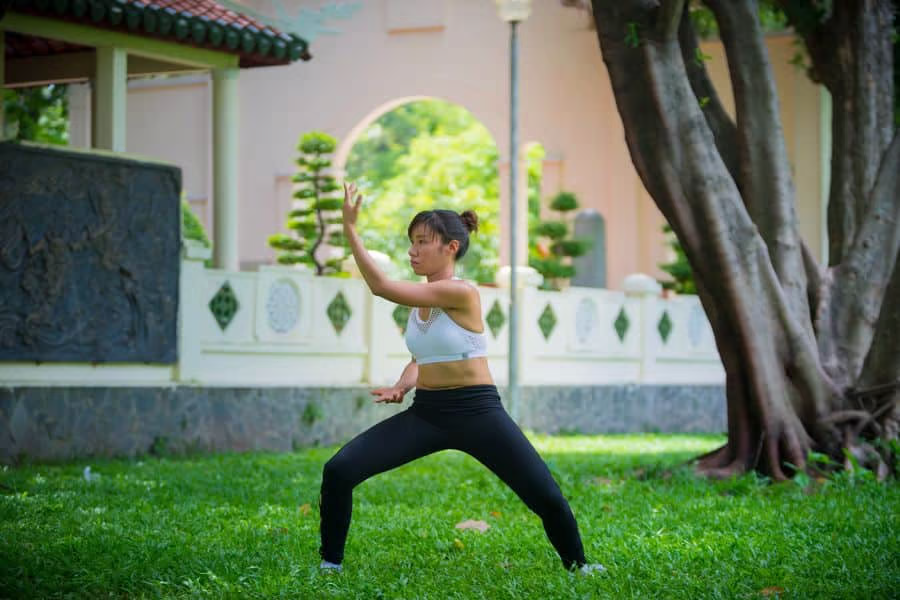
Nei Gong vs Qigong
May 25, 2022Nei Gong and Qigong are both practices that closely relate to Chinese Traditional Medicine. This is what ancient people use to relieve stress and improve overall health. However, there is a distinct style in how to use both of the styles. Let's get into what both practices offer and who can practice which.
What is the difference between Nei Gong vs Qigong?

Although both practices focus on energy as a primary basis, they differ in how they have practiced and the benefits they offer. Qigong is what unlocks and builds energy to heal and nourish the body while Nei Gong on the other hand deals with multiplying that energy in higher quantities and focusing on deeper healings.
Nei Gong
Nei Gong is a higher form of Qigong practice. It involves breathing and meditative exercise that develops and enhances awareness of the body's conscious and subconscious movement. It helps to relieve tension in the body and mind and to restore an energy balance.
This practice is mostly internal with a common focus on body elasticity and motion. Starting from the body's energy core, it works simultaneously on all the body's meridians. Nei Gong can also increase the body's energy production to drastic levels.
Qigong
Qigong is an ancient practice to heal the body and mind using dynamic movements, meditation, and breathing. This helps the body unlock blockages in the energy channels, cultivate energy, and distribute it all around the body for better wellness.
Depending on the type of Qigong you choose to focus on and what benefits you intend to gain, you can promote health and spirituality using breathing exercises and meditation. Your style of Qigong can also be more vigorous and can include the practice of martial arts.
Qigong Compared with Nei Gong
Although both practices are highly beneficial to the body and mind, it is important to understand what they offer and which practice would suit you best.
Similarities
There are a few similarities between Nei Gong and Qigong that we cannot notice right away at first glance. This is because both practices primarily rely on meditation and breathing techniques. However, upon a deeper look, you can find similarities and differences which include:
Practice
Both practices improve the body's physical, mental, and spiritual wellness through exercises and energy cultivation and circulation. These two forms of traditional practices help to create harmony between the body and mind. They also primarily require a free flow of energy to impact the body.
Effects
Nei Gong and the Qigong practices can both help the body transform into a meditative state. These practices help the body achieve a higher stage of spiritual and physical development. Through constant use, you can rid your body of negative energy, illnesses, and emotional problems.
Differences

To get the most benefits from these two practices, one needs to understand the differences between them and utilize each practice as recommended.
Style
Nei Gong tends to start from within the body before working outwards. Its primary focus is on the deepest energy channels in the body simultaneously. Energy is moved around the body by the mind to open and strengthen the body's meridians. This practice requires advanced knowledge and extreme discipline.
Qigong on the other hand starts working from outside the body proceeding inwards. It works by unclogging the core and distributing energy all around the body. Qigong cultivates and distributes energy within the body through controlled breathing and flexible movements. This practice can be done by beginners as well as adults with physical limitations.
Posture
Nei Gong primarily involves turning or walking while maintaining fixed positions. These fixed movements stimulate and open the meridians for energy distribution.
Qigong on the other hand involves controlled breathing, meditation, and free-flowing poses to cultivate and distribute energy.
When it comes to the distinct difference between both practices, Nei Gong is said to be more demanding than Qigong because of its advanced requirements.
When to Use Nei Gong
Nei Gong should be practiced by individuals with advanced knowledge of Qigong practices. It is a higher form of Qigong that requires certain skills and competencies. Nei Gong can increase energy flow drastically, without the right control, this could prove to be deadly to the body or mind.
When practiced correctly, Nei Gong acts on the body and the mind to create balance. There are several other benefits associated with this exercise form including:
Improved Flexibility

The twisting and fixed movements associated with Nei Gong are known to improve joint and muscle movement. These movements can detoxify the internal organs and promote the uninterrupted flow of energy all around the body.
Boosts Coordination
By holding fixed poses for a long period, older citizens especially can learn to improve their body coordination. They help to improve the body's self and mental awareness and concentration.
Improve Circulation
Through unlocking and unclogging the body's energy channels, Nei Gong helps to promote a free flow of energy and blood within the body. The continuous practice also ensures that these channels stay open and free.
When to Use Qigong
Qigong on the other hand can be practiced by anyone. There are several forms and types of qigong. Individuals of different age groups and health conditions who are willing to improve their health or attain a state of wholesomeness with the body and mind should start out with qigong.
This practice is wide and divided into stages and does not require prior experience to begin. Several known benefits can be achieved with the continuous practice of qigong. They include:
Support Respiratory System
Through constant practice of controlled breathing and deep meditation, qigong helps to improve the immune and respiratory systems. It helps to rid the body of stress and reduce inflammation.
Improve Mental Health
In healing and developing the physical body, qigong also heals and develops the mental state. It helps to get rid of negative energy and emotions that can weigh on one's mental health and help manage depression. The practice of controlled breathing and meditation also helps the mind achieve a state of clarity and spiritual harmony.
Improves Balance
Qigong practice requires the continuous application of slow and free movements. These movements improve flexibility, muscular balance, and strength. They help the body reduce the risk of muscle stiffness and other muscle or bone-related illnesses.
Which Practice Is Better?
Both practices ultimately improve one's health physically, spiritually, and mentally. However, Nei Gong is another form of qigong. Hence, with constant practice, one can reach the highest level of qigong and maximize its benefits.
Conclusion
Nei Gong is simply the higher stage of qigong. It requires extensive knowledge to be practiced. Qigong is more flexible and accommodating. However, pay attention to not attempting Nei Gong without proper supervision and knowledge.



